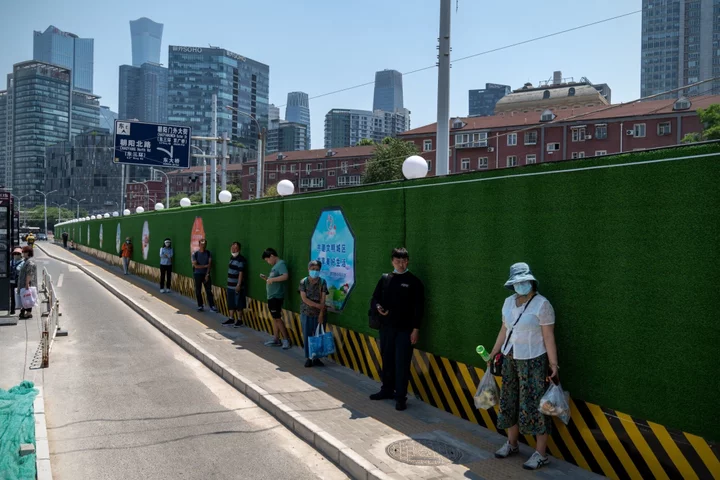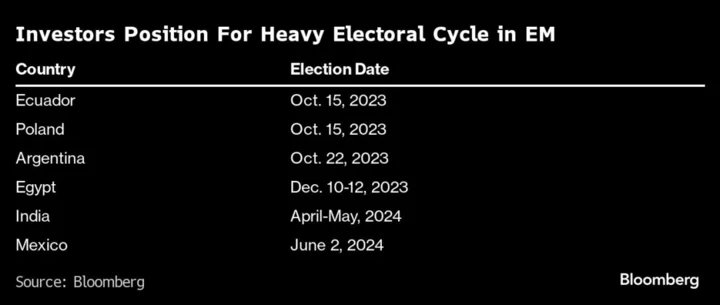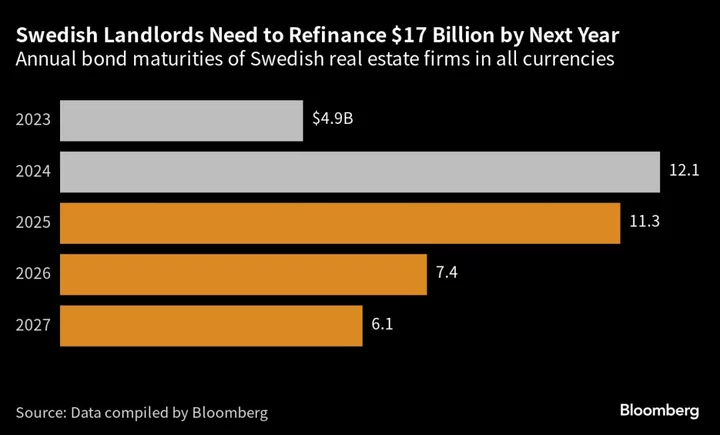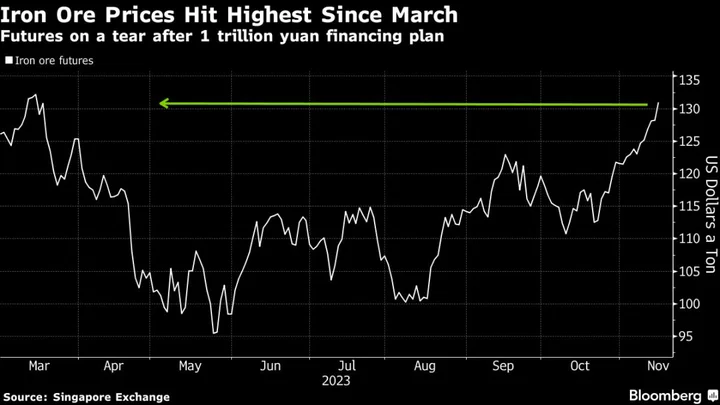Extreme heat and rising energy demand risk overwhelming China’s attempts to prevent a repeat of last year’s curbs on power supply in the major industrial province of Sichuan.
China’s sixth-biggest provincial economy, with a higher GDP than Poland, is heavily reliant on hydropower and is being forced to ration electricity as water levels fall due to hot and dry weather. It’s also had to cut electricity exports to the populous east coast, potentially contributing to shortages there.
Steel and cement plants in Sichuan are limiting production until early next month, electric vehicle users were asked to charge at night, and government offices and shopping malls are also being encouraged to save power, according to local media. A theater even had to reschedule a musical performance because of the strain on the grid.
There’s a growing threat the shortages may rival last year, when nearly all industrial power users had to pause production for at least six days. Toyota Motor Corp. has a factory in the province, Tesla Inc. has suppliers there, while Sichuan is also important for electronics and solar panel manufacturing.
“Without hydro, the whole system is out of power to places like Sichuan and Yunnan, so industries will be on the frontline to take a hit,” said Lin Boqiang, dean of Xiamen University’s China Institute for Studies in Energy Policy. “Asking industries to take a few hours’ breaks every day might be the most effective way to minimize overall losses.”
Neighboring Yunnan is also heavily dependent on hydro, but has received more rain recently, allowing some aluminum producers there to restart operations.
The problems in Sichuan could be replicated in other parts of China if extreme heat persists over the coming weeks, with levels on the Yangtze River, which is crucial for hydropower, predicted to drop. China had a record number of days when the average temperature was 35C (95F) or above in the first half, highlighting the increasing pressure that global warming is putting on the grid.
The National Energy Administration has warned that sweltering temperatures have delivered a surge in power demand, and the China Electricity Council is forecasting that electricity supply will be tight in southern, central and eastern parts of China.
Sichuan cut nearly all of its outbound power sales in June to secure its own consumption, according to a power-trading research institute in the provincial capital of Chengdu. Some copper rod manufacturers in the coastal province of Zhejiang, which takes electricity from Sichuan, have been forced to reduce production due to power rationing, industry researcher Mysteel said this week.
China’s growing problems with hydro over summer look, at least in the short term, to increase its reliance on fossil fuels. It’s been producing and importing large amounts of coal this year, although President Xi Jinping did call for greater efforts to to curb carbon dioxide emissions at a meeting this week.
Provinces including Hubei, Hunan, Jiangxi, Jiangsu, Zhejiang and Guangdong may face more power shortages throughout the summer, said Nannan Kou, BloombergNEF’s head of China research. “If hydro production get even worse in the coming months, or the power demand increases too much, then the power curbs will happen more.”
--With assistance from David Stringer.









